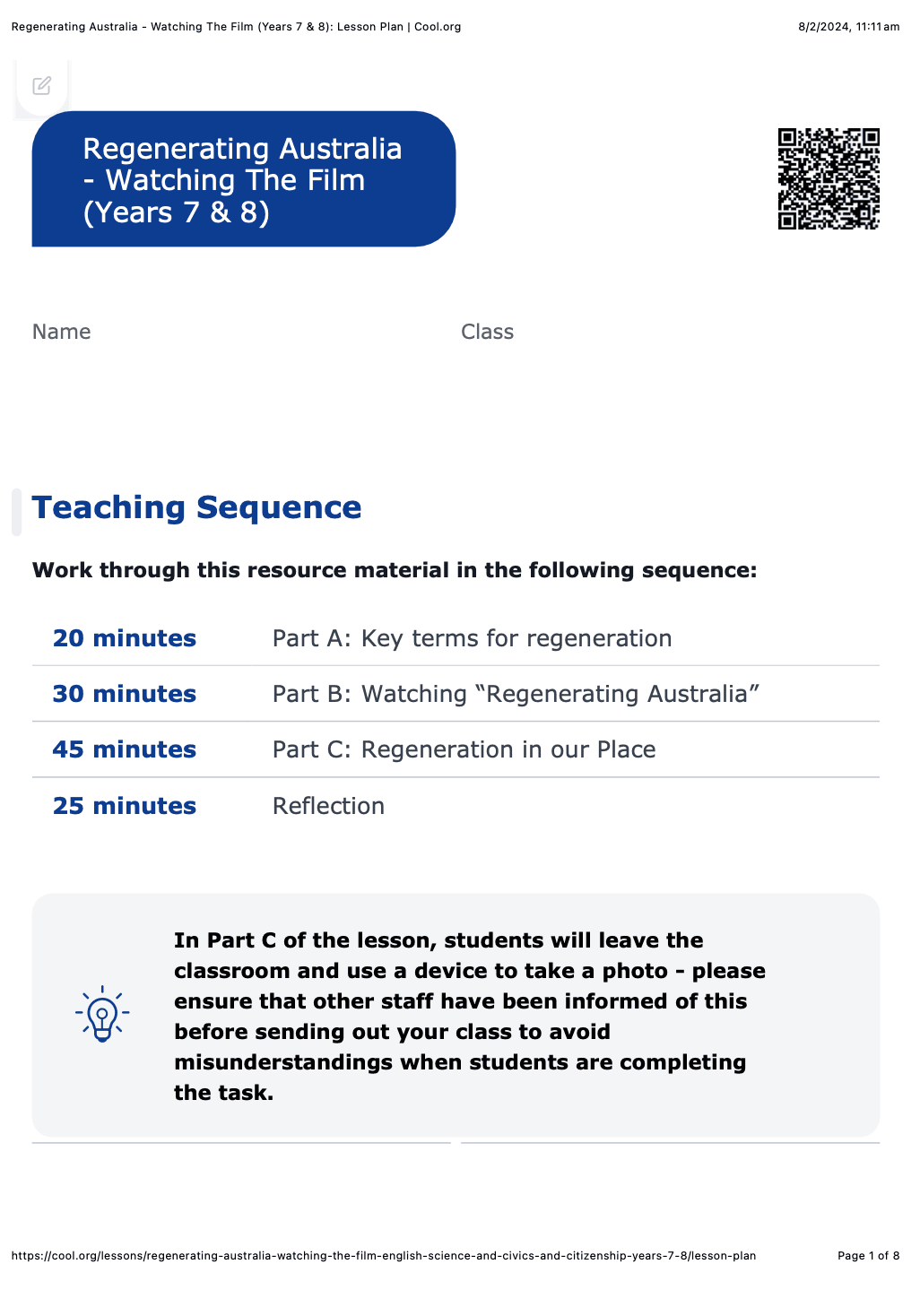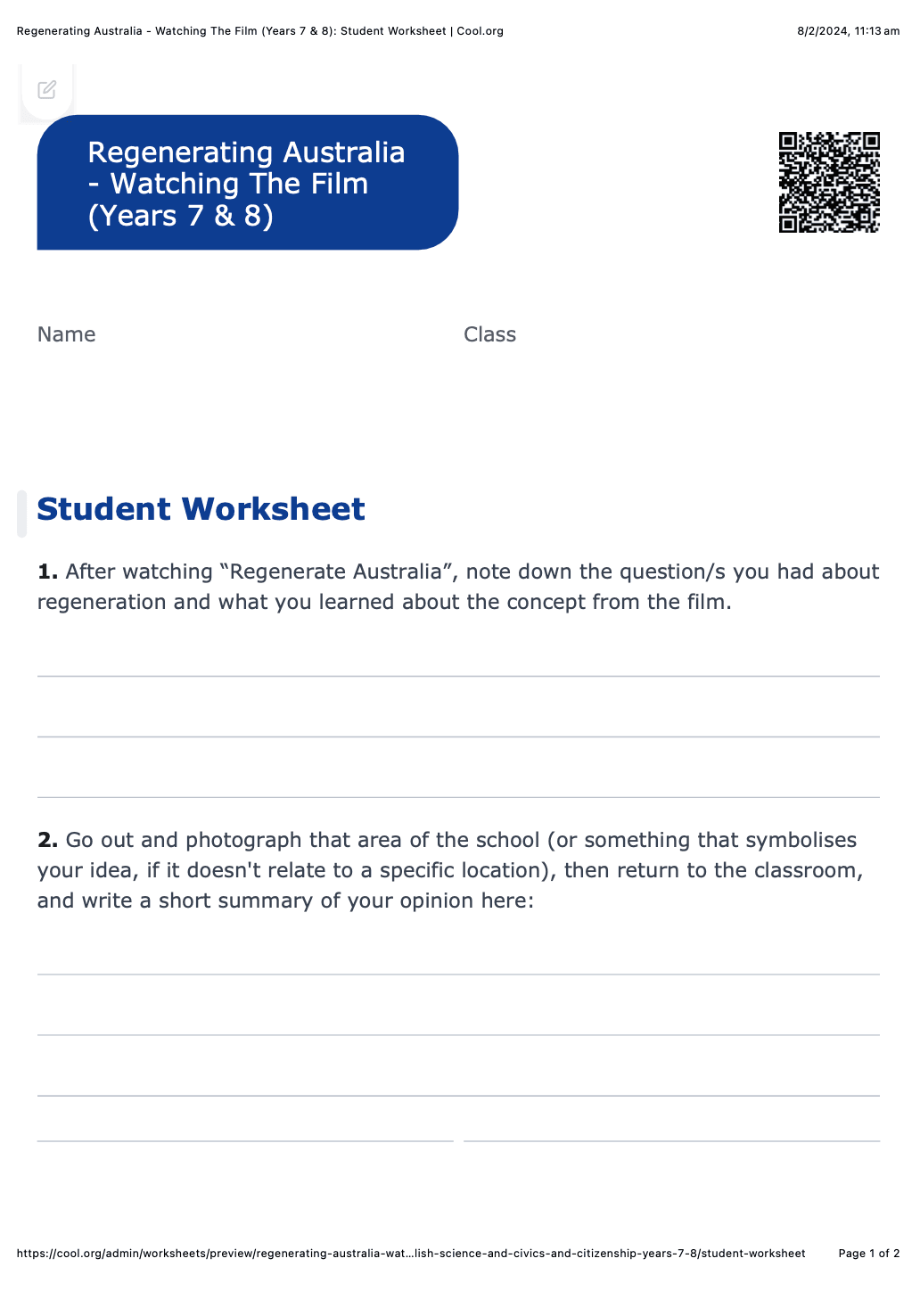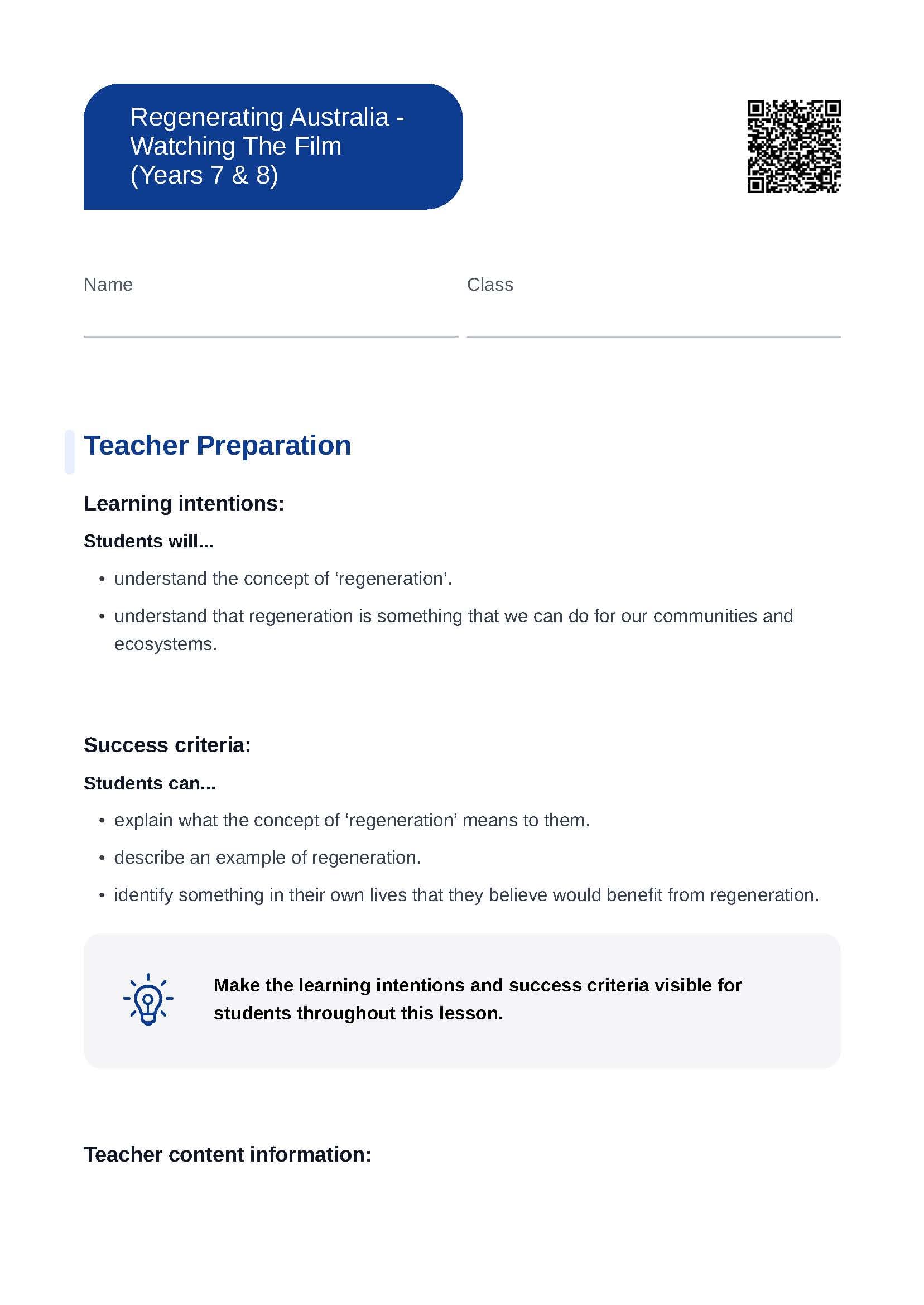
Regenerating Australia - Watching The Film (Years 7 & 8)
Lesson2 of 3 in this unit
SecondaryYear 7 - 8EnglishLearning through filmHumanities and Social SciencesCivics and CitizenshipEnvironmentalClimate ChangeSustainabilityEconomicDesign ThinkingIndustry, Innovation and Infrastructure
Summary
Lesson Guides and Printables
Lesson Plan

Student Worksheet

Teacher Content Info
